OTRĀ SEMESTRA NOSLĒGUMA TESTI
Learn: what if your phone suddenly stopped working, or the lights went out in your house? Could you explain what’s wrong? Understanding electricity isn’t just for electricians — it’s the key to understanding the world around you! So, let’s "flip the switch" on learning and explore the language of electricity!
Word bank:
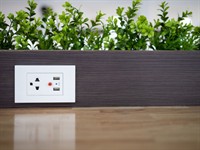
socket — [sɒk.ɪt] — a device into which an electrical plugs are inserted to make a connection with the electrical supply
Please plug the lamp into the wall socket.
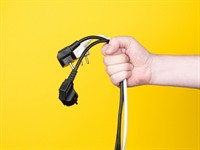
plug — [plʌɡ] — a device for making an electrical connection with a socket
I need to find the right plug for my laptop charger.
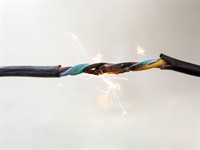
cable — [keɪ.bəl] — a thick wire covered by insulation that is used to carry electricity
We need a longer cable to reach the television from the socket.
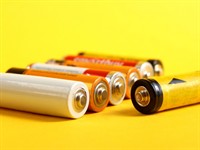
battery — [bæt.ər.i] — a device containing an electric cell or a series of electric cells, storing energy that can be converted into power
My remote control doesn't work because the battery is dead.
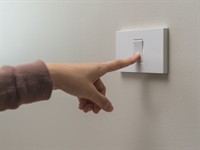
switch — [swɪtʃ] — a device for making and breaking the connection in an electric circuit
Could you turn off the light by flipping the switch?
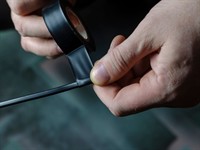
electrical tape — [iˈlek.trɪ.kəl teɪp] — a type of insulating tape used to secure and insulate wires and cables
We used the electrical tape to mend the exposed wire on the lamp.
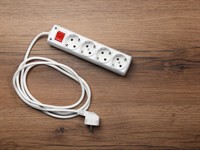
extension lead — [ɪkˈsten.ʃənˌliːd] — an electric cable with a plug on one end and one or more sockets on the other, used to connect devices to distant power outlets (*British English)
extension cord — [ɪkˈstɛn.ʃən kɔrd] — a long, flexible electrical cable with a plug on one end and one or more sockets on the other. It is used to extend the reach of a power outlet (*American English)
We'll need an extension lead to use the projector in the middle of the room.
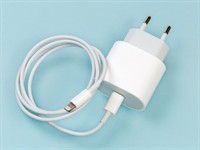
charger — [ˈtʃɑː.dʒər] — a device used to add energy to a rechargeable battery or device
I forgot my phone charger at home, so I can't charge my phone.
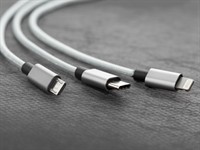
charging cable — [ˈtʃɑr.dʒɪŋ ˈkeɪ.bəl] — a cord used to connect a device, like a smartphone, tablet, or laptop, to a power source (such as a wall outlet, computer, or power bank) for recharging its battery
I forgot to pack my charging cable, so I couldn’t charge my phone during the trip
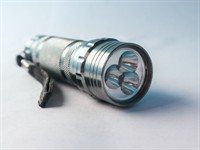
torch — [tɔːtʃ] — a portable device that emits light, typically powered by battery cells (*British English)
flashlight — [ˈflæʃ.laɪt] — a small light that is held in the hand and usually gets its power from batteries (*American English)
We used a torch to find our way back to the campsite at night.

light bulb — [ˈlaɪt ˌbʌlb] — a device that emits light when electrically heated; (also: lightbulb, light-bulb)
We need to replace the light bulb; it burned out yesterday.
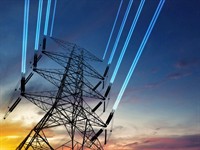
power line — [ˈpaʊə laɪn] — wires and cables that carry electricity over long distances
The storm knocked down the power line, causing a blackout.
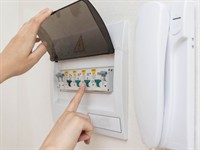
circuit breaker — [ˈsɜː.kɪt ˌbreɪ.kər] — a safety device that stops electricity flow if there’s too much current
During the intense storm, the circuit breaker tripped, plunging the house into darkness but averting a potential electrical disaster.
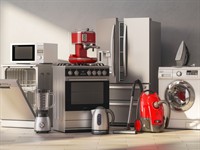
appliance — [əˈplaɪ.əns] — a device, machine, or piece of equipment, especially an electrical one that is used in the house, such as a cooker or washing machine
Your refrigerator is an appliance that keeps your food cold and fresh.

electric shock — [iˌlek.trɪk ˈʃɒk] — a sudden painful feeling that you get when electricity flows through your body
Touching a bare wire can give you an electric shock, so always be careful around electricity.
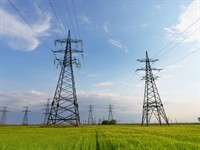
electric pole — [iˈlek.trɪ.kəl pəʊl] — a tall structure, usually made of wood, concrete, or metal, used to support overhead power lines
The electric poles outside our house hold the wires that bring electricity to our neighborhood.
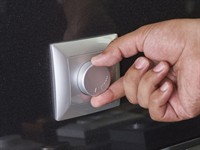
dimmer — [ˈdɪm.ə] — a device for changing the brightness of an electric light, often combined with a switch to turn the light on and off
The dimmer on the wall lets you adjust the brightness of the lights to create a cozy atmosphere.
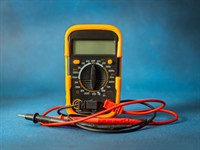
multimeter — [ˈmʌl.tiˌmiː.tər] — an electronic device that measures voltage, current, and resistance
The electrician used a multimeter to check if the circuit was working properly by measuring the voltage.
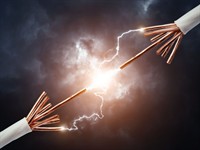
current — [ˈkʌr.ənt] — a movement of electricity in a particular direction
Electric current flows through the wires when you switch on the light.
*British English — Britu angļu valodā runā Apvienotajā Karalistē un Eiropā
*American English — Amerikāņu angļu valodā runā Amerikas Savienotajās valstīs
*American English — Amerikāņu angļu valodā runā Amerikas Savienotajās valstīs
Svarīgi!
Pay attention: what's the difference between electric, electrical and electronic in English?
Watch a short video and find out: What's the difference between electric , electrical and electronic in English?
Study the words from the video one more time.
Word bank:
electric — [iˈlek.trɪk] — an adjective that is used with a particular device that uses electricity
electrical — [iˈlek.trɪ.kəl] — an adjective that is used to talk about a system, or machine that uses or produces electricity in a more general way. Also can be used to talk about people or organizations connected to the production of electricity
electronic —ˌ[el.ekˈtrɒn.ɪk] — (especially of equipment), using, based on, or used in a system of operation that involves the control of electric current by various devices
electrical — [iˈlek.trɪ.kəl] — an adjective that is used to talk about a system, or machine that uses or produces electricity in a more general way. Also can be used to talk about people or organizations connected to the production of electricity
electronic —ˌ[el.ekˈtrɒn.ɪk] — (especially of equipment), using, based on, or used in a system of operation that involves the control of electric current by various devices